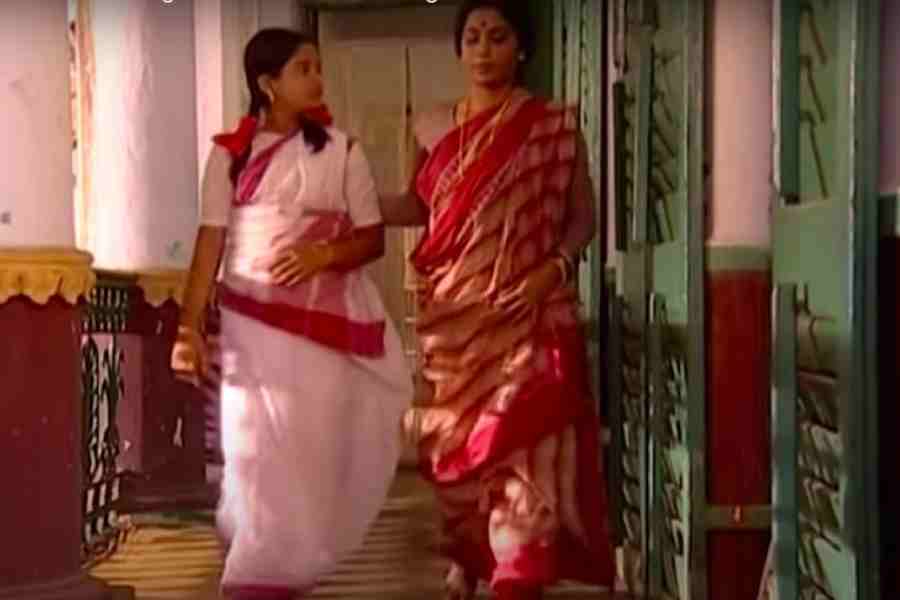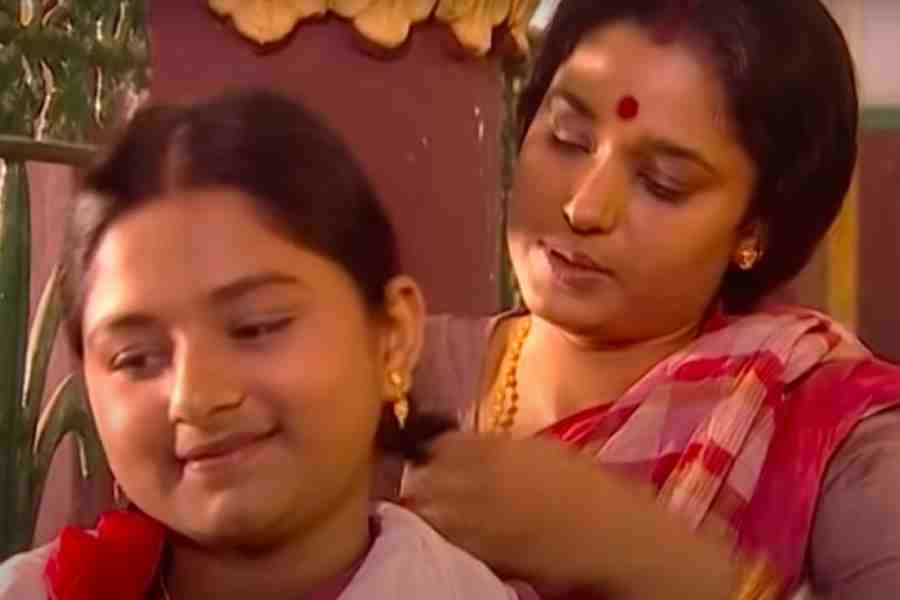I hadn’t noticed until recently that whenever we meet, my woman friends and I, we talk a lot about our mothers. Their strong opinions, our meek submissions; their ability to see through people, our inability to learn from our mistakes; their refusal to be easily pleased by their daughters, our discomfort should any offering be met with a smile and silent acceptance instead of the routine holler and 20 questions.
We talk about their sodium- potassium levels and achy knees, how they surprise us when they enter a discussion about sexuality and identity, make a perspicacious point and exit, their murderous Hindi and the all-round concern and commentary on “Rahul’s” political and personal future.
We roll our eyes at their obsessive need to have their bank passbooks updated and how they need no phonebook or saved contacts to call the family doctor or the LPG booking centre. Some of their Kindles might be filled with romances but their take on marriage is pragmatic and only semi-joking — basically a useful arrangement for any woman of any age with the partner as someone who is going to run errands for daughter dearest. “You need him to pay my bills, so say it,” a friend told her mother. The elder reportedly snapped back, “Why? You have a job, you pay your bills.” And then, as my friend demonstrated, she added softly, “He’ll be there for support in the event of a hospitalisation or some other crisis.”
Those who know no better might think we are cackling at our mothers’ idiosyncrasies. (The mothers most certainly do.) But fact is, there are a lot of things going on here.
First, there is a pride in establishing that we are sprung off such Amazonian and interesting creatures as opposed to some Mother Stereotype. Though come to think of it, there is no stereotype for a daughter’s mother. You can turn literature upside down and you will find near nothing. In Indian films too, there is a stereotype for the hero’s mother and father, Ramu kaka, the hero and the heroine’s best friends, the villain, even the heroine’s pipe-smoking, dressing gown-wearing indulgent father, but the heroine’s mother is missing.
Second, there is an element of discovery. We are possibly among the first generation of daughters in India who have had the chance to get to know their mothers, live in close proximity or together, well into adulthood. There is an unshakeable sense of privilege at being able to have this experience.
The privilege is difficult to spell out. It is easier to work it out backwards, and one way is to invoke the Other.
I always think of Subarna- lata. Ashapurna Devi wrote Subarnalata when she was nearly 60. Subarna, after whom the novel is named, was married off when she was a little girl and without her mother’s knowledge. This was early 20th-century Bengal. To marry off a girl child was de riguer, but Satyabati had set her heart on moulding her daughter in a certain way; she had been determined to educate her. So when she learnt what had happened, she was stunned. Society had taken away from her what she most cherished — her role and responsibility as a daughter’s mother — so Satyabati shunned society.
She left home, her husband, her sons, the nest she had built, and went to Kashi. As for Subarna, she transitioned from girlhood to womanhood to motherhood remembering and being reminded of her long-absent mother. In a sense, Subarna became her mother, albeit a version. In one of the TV adaptations, the actor who played Satyabati also played Subarna.
What if Satyabati was able to raise Subarna without interruption, I cannot help but let my imagination wander. Would it have made a difference to the person Subarna eventually became? In what way? More astute person? Strong woman? More conscientious mother? The questions hum. But Subarna was all those things. Then what is it that she didn’t have, which our generation has been able to experience?

Society had taken away from her what she most cherished — her role and responsibility as a daughter’s mother — so Satyabati shunned society Sourced by The Telegraph
The privilege is in the experience itself, the experience of the proximity. To just pour out a glass of water, daughter for mother, mother for daughter. Or catch each other’s expression, say, when they announce lockdown. To keep discovering the person behind the mother — the way she loves, the way she thinks, the way she grieves; to have her see you as the person beyond daughter. To recognise you are different, differing versions of each other. To be able to talk to each other without any need for the larger society’s permission or caring for its reproach. To dial her number and hear what could be an echo of your own voice. To be a little unwell and have her near you, older, way more frail than you, but vigilant like a warrior… A line from Conrad comes to mind — though from a completely different context. It goes — “her tenderness hovered like a flutter of wings”. I would use the word “motherness”.
No, Subarna wouldn’t have known these things.
But I wonder if there is a parallel universe. I wonder if like the butterfly whose flapping wings triggered a tornado somewhere in the world, if this experience of our daughterhood comforts the Subarnas and Satyabatis across a time flap. If they shed a tear, heave a satisfied sigh, hug themselves, thrilled…











